Seongyeop Yang
Sampling Agnostic Feature Representation for Long-Term Person Re-identification
Sep 20, 2022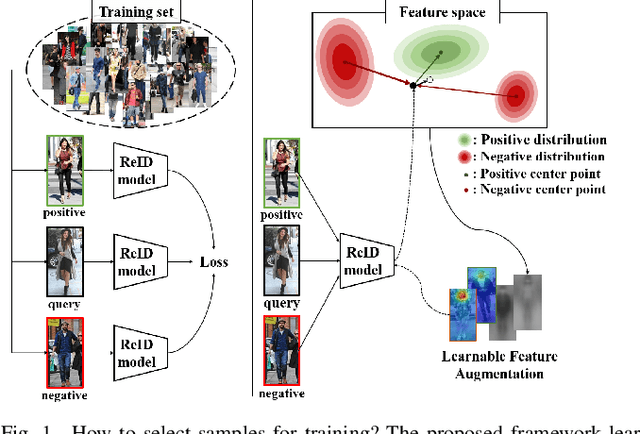
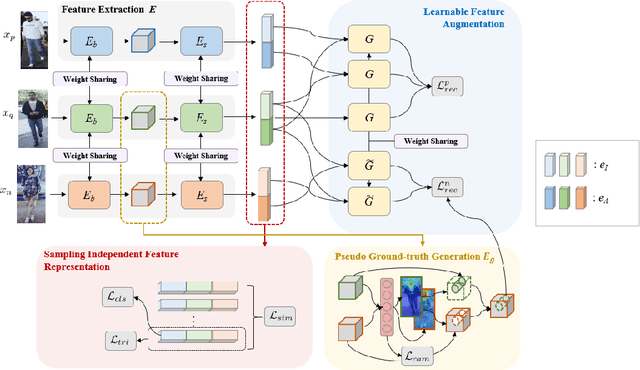
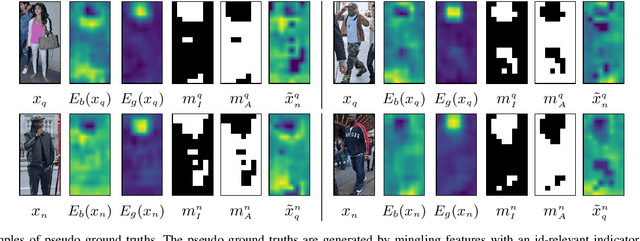
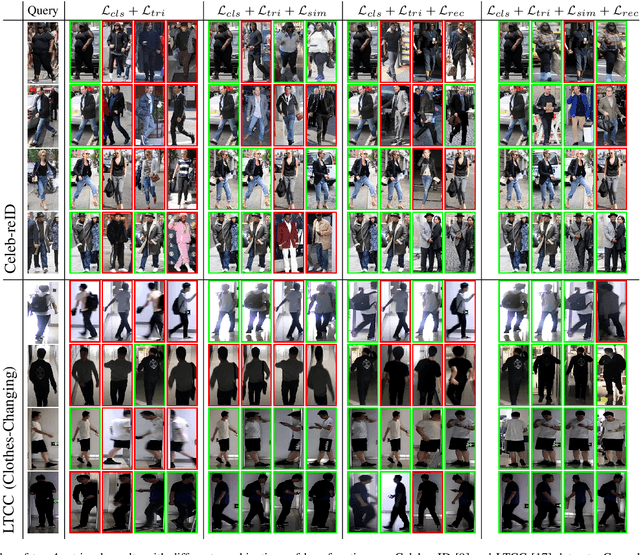
Abstract:Person re-identification is a problem of identifying individuals across non-overlapping cameras. Although remarkable progress has been made in the re-identification problem, it is still a challenging problem due to appearance variations of the same person as well as other people of similar appearance. Some prior works solved the issues by separating features of positive samples from features of negative ones. However, the performances of existing models considerably depend on the characteristics and statistics of the samples used for training. Thus, we propose a novel framework named sampling independent robust feature representation network~(SirNet) that learns disentangled feature embedding from randomly chosen samples. A carefully designed sampling independent maximum discrepancy loss is introduced to model samples of the same person as a cluster. As a result, the proposed framework can generate additional hard negatives/positives using the learned features, which results in better discriminability from other identities. Extensive experimental results on large-scale benchmark datasets verify that the proposed model is more effective than prior state-of-the-art models.
Dense Depth Estimation from Multiple 360-degree Images Using Virtual Depth
Dec 30, 2021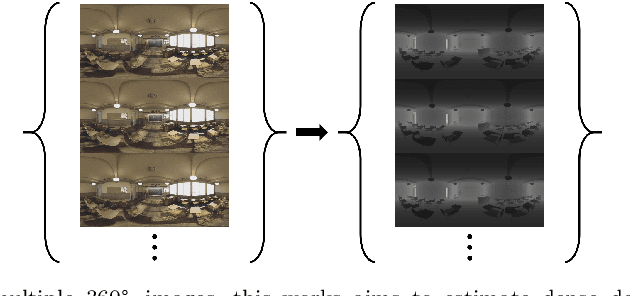
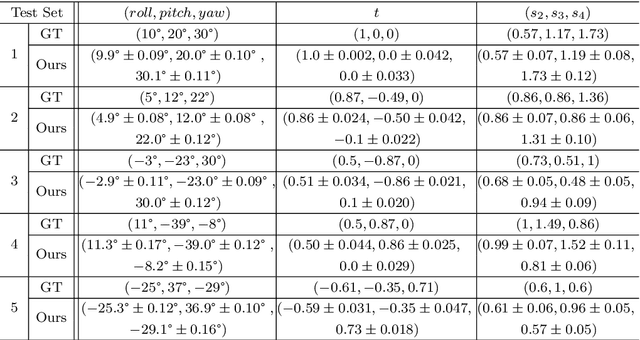
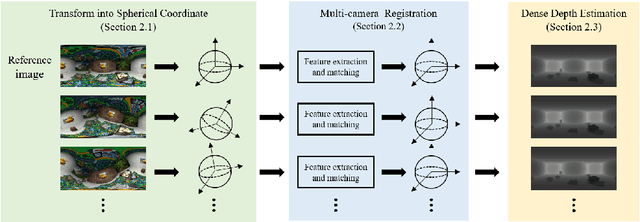
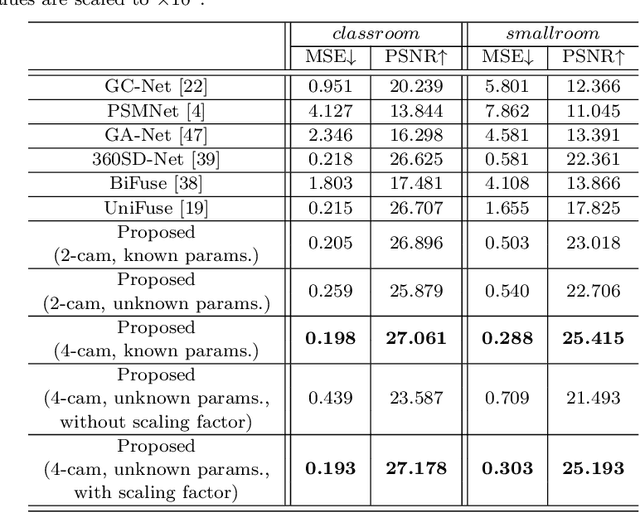
Abstract:In this paper, we propose a dense depth estimation pipeline for multiview 360\degree\: images. The proposed pipeline leverages a spherical camera model that compensates for radial distortion in 360\degree\: images. The key contribution of this paper is the extension of a spherical camera model to multiview by introducing a translation scaling scheme. Moreover, we propose an effective dense depth estimation method by setting virtual depth and minimizing photonic reprojection error. We validate the performance of the proposed pipeline using the images of natural scenes as well as the synthesized dataset for quantitive evaluation. The experimental results verify that the proposed pipeline improves estimation accuracy compared to the current state-of-art dense depth estimation methods.
 Add to Chrome
Add to Chrome Add to Firefox
Add to Firefox Add to Edge
Add to Edge